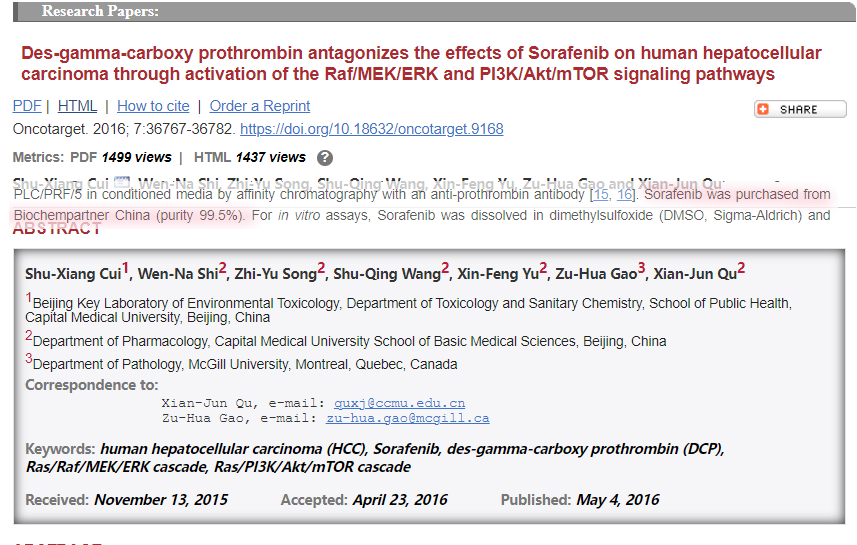Des-gamma-carboxy prothrombin antagonizes the effects of Sorafenib on human hepatocellular carcinoma through activation of the Raf/MEK/ERK and PI3K/Akt/mTOR signaling pathways

ABSTRACT Despite significant progress, advanced hepatocellular carcinoma (HCC) remains an incurable disease, and the overall efficacy of targeted therapy by Sorafenib remains moderate. We hypothesized that DCP (des-gamma-carboxy prothrombin), a prothrombin precursor produced in HCC, might be one of the reasons linked to the low efficacy of Sorafenib. We evaluated the efficacy of Sorafenib in HLE and SK-Hep cells, both of which are known DCP-negative HCC cell lines. In the absence of DCP, Sorafenib effectively inhibited the growth of HCC and induced cancer cell apoptosis. In the presence of DCP, HCC was resistant to Sorafenib-induced inhibition and apoptosis, as determined by in vitro assays and in mice xenografted with HLE cells. Molecular analysis of HLE xenografted-nude mice showed that DCP activates the transduction of the Ras/Raf/MEK/ERK and Ras/PI3K/Akt/mTOR cascades. DCP might stimulate the formation of compensatory feedback loops in the intricately connected signaling pathways when kinases are targeted by Sorafenib. Our results indicate that DCP antagonizes the inhibitory effects of Sorafenib on HCC through activation of the Ras/Raf/MEK/ERK and Ras/PI3K/Akt/mTOR signaling pathways. Taken together, our findings define a DCP-mediated mechanism of inhibition of Sorafenib in HCC, which is critical for targeting therapy in advanced HCC.




